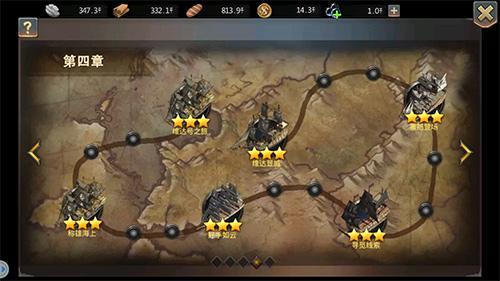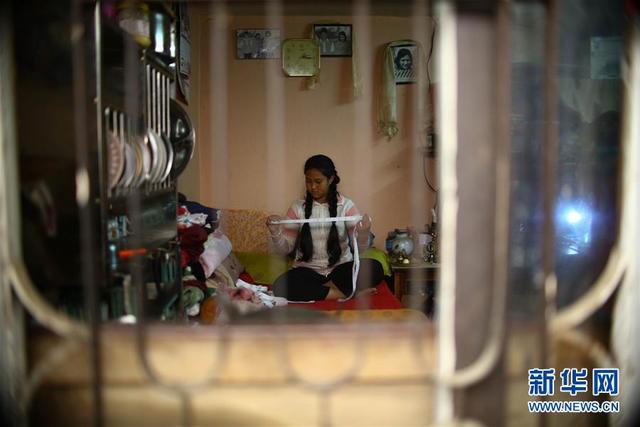Hello, come in. Come in. You're the first here. Actually, you're the only one here.,下面我们就来聊聊关于雅思口语用词简单?接下来我们就一起去了解一下吧!

雅思口语用词简单
Hello, come in. Come in. You're the first here. Actually, you're the only one here.
哈喽,进来吧,进来。事实上,这里就你一个人。
But that's Great. Listen, it's great to see you.
太好了。很高兴见到你。
I thought today we could learn and practice some idioms to talk about people. That's right. As you know, in IELTS speaking, it's really important to describe people and to know how to describe people.
我想今天我们可以学习和练习一些关于人的习语。没错。你知道,在雅思口语中,描述人和知道如何描述人是非常重要的。
So this could be really useful for you. Let's do it.
这对你很有用。让我们开始吧。
So, as you may Well know, my name is Keith. What's your name by the way?
如你所知,我的名字叫基斯。对了,你叫什么名字?
right, nice cool name. Well, um, oh, by the way, do you know that I run live lessons on YouTube every Tuesday and Thursday?
很好,不错的名字。哦,对了,你知道我每周二和周四在油管上直播上课吗?
Right, you knew. Yes, that's right, 10 o'clock in the morning Spanish time every Tuesday and Thursday.
好,你知道。没错,班牙时间每周二和周四上午十点。
Keep coming. I think there's lots of interesting stuff to learn there.
坚持过来哦。我认为那里有很多有趣的东西可以学习。
And if you want more resources, yeah, go and check out my website keithspeakingacademy. com. There will be lots of new stuff coming there soon.
如果你想要更多资源,请访问我的网站 keithspeakingacademy.com。很快就会有很多新东西出现。
So, great! Listen, let's start talking about idioms. What is an idiom exactly?
太棒了!听着,让我们开始谈论习语吧。习语究竟是什么?
Idioms are fixed phrases whose meaning is different from the individual words. And often, you can't guess the meaning by looking at the individual words, right? Idiomatic.
习语是固定的短语,其意义与单个单词不同。通常,你不能通过看单个单词来猜测它的意思。
So, for example, if I were to say "I think I've just put my foot in it". "Put your foot in", what? You mean you stood in some dog poo or something?
例如,如果我说 “I think I've just put my foot in it”。"Put your foot in",什么?你是说你踩到狗屎了?
No, I just told Sarah her ex-boyfriend is going to get married. I thought she knew but she didn't.
不,我刚告诉莎拉她前男友要结婚了。我以为她知道,但她不知道。
And now, she's so upset. So, when we say something that can accidentally upset or make somebody angry, we can say "to put your foot in it".
现在,她很沮丧。当我们说一些可能会意外地使某人心烦意乱或生气的事情时,我们可以说“to put your foot in it”。
I put my foot in it, right, or she put her foot in it, right? That's a simple idiom.
I put my foot in it,对吧,she put her foot in it。这是一个简单的习语。
It's not about putting your foot anywhere. That's not really the meaning, there's a wider meaning.
这与把你的脚放在任何地方无关。这并不是真正的意思,还有更广泛的含义。
To say something by accident that will upset somebody. Great. Now then do you know any idioms?
无意中说了使某人不高兴的话。太好了。那么你知道其他一些习语吗?
Yeah, great. So you know we use idioms to get attention, especially in journalism, newspapers, blogs and articles, we often use it for humour. We can make jokes with it or just to emphasize or add colour to what we're trying to say.
嗯,很好。所以你知道我们用习语来引起关注,尤其是在新闻、报纸、博客和文章中,我们经常用习语来表达幽默。我们可以用它来开玩笑,或者只是为了强调或为我们想要说的内容增添色彩。
In IELTS speaking, of course, it is a part a key part of your vocabulary score is being able to use idiomatic vocabulary. So, it might be useful to know the different types of idioms that we can use as well.
当然,在雅思口语中,它是一个重要的部分,你的词汇分数的一个关键部分是能够使用习语词汇。所以,了解我们可以使用的不同类型的习语可能是有用的。
Let's have a look at those. So, there are many different kinds of idioms, right?
让我们来看看这些。有很多种不同的习语。
There are similes, metaphors, euphemisms, binomials, and proverbs, sayings. There's lots of kinds.
有明喻、隐喻、委婉语、双名词组和谚语、俗语。有很多种。
And knowing what category an idiom comes from can sometimes help you to remember it and to use it. So, let's have a look first at the different types of idiom and then later we'll look in more detail specifically about idioms for people, okay?
知道一个习语来自哪个类别有时可以帮助你记住它并使用它。那么,让我们先看一下不同类型的习语,然后我们会更详细地学习用来形容人的习语。
Does that sound good? Great! Hunky-dory!
听起来不错吧?太棒了!极好的!
So, types of idioms, let's look at similes first. Do you know any examples of similes?
习语的类型,让我们先看看明喻。你知道明喻的例子吗?
One of my favourite ones is um "they are like two peas in a pod". So, similes are expressions comparing two things usually using "like" or "as", right?
我最喜欢的一个是 "they like two peas in a pod"。明喻是比较两种事物的表达,通常用 like 或 as。
So, as I said my two brothers, I don't have two brothers, right, my brother and sister are like two peas in a pod, which means they are very very similar, right? Because they are similar to two peas which is the vegetable sitting in the pod which holds the vegetable.
就像我说的,我的两个兄弟,我没有两个兄弟,对吧,我的哥哥和姐姐就像一个豆荚里的两颗豆子,这意味着他们非常非常相似。因为他们和两颗豌豆很像,豌豆就是豆荚里的蔬菜。
Or we can say, "Tom, my friend, he's very very clever, he's as sharp as a knife." As sharp as a knife.
或者我们可以说,“汤姆,我的朋友,他非常非常聪明,他像刀一样锋利。”像刀一样锋利。
So, we're comparing Tom to a knife being very very sharp and that means he's clever or intelligent. So, these are similes.
我们把汤姆比作一把刀,非常非常锋利,这意味着他很聪明。这些都是明喻。
What about metaphors? Metaphors are similar.
那么隐喻呢?隐喻表示相似。
Do you know any metaphors? So, metaphors are similar, but we're not really comparing them to something.
你知道隐喻吗?隐喻表示相似,但我们并没有把人和什么东西进行比较。
We are saying they are something. And we're taking maybe a thing or an object and personifying it, right, making it like a person or making the person like the object, right?
我们说他们是某物。我们可能会把一件东西或一件物品拟人化,对吧,让它像一个人或者让人像这件物品,对吧?
So, for example, Tom is as sharp as a knife but Harry, Harry at school, right, in my schoolmate, he used to think 2x2 was 22. Now, maybe creative but the teacher said, "Duh, he's not the sharpest tool in the shed."
例如,汤姆像刀一样锋利,但是哈利,学校里的哈利,对,我的同学,他曾经认为 2x2 等于 22。也许是有创意,但老师说:“兄弟,他不是棚里最锋利的工具。”
So, "he's not the sharpest tool in the shed" means he is stupid, not clever. So, here we're saying he "is", not "like", but he "is" a tool in the shed.
所以,“他不是棚里最锋利的工具” 的意思是他很愚蠢,不聪明。所以,这里我们说 he is,而不是 like,而是 he is a tool in the shed。
The shed is the place where you keep all the tools for gardening, right? Now, let's look at binomials.
这个小棚子是你存放园艺工具的地方。现在我们来看双名词组。
Binomials are normally two words joined by a preposition and that's usually "and", right, um, things like "fish and chips", "black and white", the "and" becomes /ənd/, "black and white", "fish and chips", okay? Do you know any binomials?
双名词组通常两个词加入了一个介词,通常是“and”,例如“fish and chips”、“black and white”,“and”读音变成/ənd/,“black and white”,“fish and chips”。你知道哪些双名词组吗?
Whoa, lovely! Okay! So, binomials for people.
哇,太棒了!很好!形容人的双名词组。
Do you remember Sherlock Holmes? He's very calm and collected, right?
你还记得夏洛克·福尔摩斯吗?他沉着冷静。
He's very, he's as cool as a cucumber actually. That's the simile, remember?
实际上,他泰然自若(他像黄瓜一样酷)。这是明喻,记得吗?
But "he's calm and collected" means he's very very well very calm. Take another example, my wife, right, do you know what she does to relax?
但是“he's calm and collected”,表示泰然自若的意思,他非常非常冷静。再举一个例子,我妻子,你知道她做什么来放松吗?
Well, she likes to surf the Internet. But me, I'm not really into that.
她喜欢网上冲浪。但是我,我不是很喜欢那个。
I much prefer listening to music. So, we're quite different.
我更喜欢听音乐。我们不一样。
We're like chalk and cheese. "Chalk and cheese".
我们就像粉笔和奶酪。“Chalk and cheese”。
Chalk is for writing on the board, cheese, delicious, with a bit of red wine, that's for eating. But we like "chalk and cheese", we're very different, another binomial.
粉笔是写在黑板上的,奶酪,美味,加配上一点红酒,那是用来吃的。但我们像“粉笔和奶酪”,我们非常不同,这是另一个双名词组。
That said, my wife is a very very helpful person and she will always be there to help come rain or shine. "Come rain or shine".
话虽如此,我的妻子是一个非常乐于助人的人,无论发生什么情况,她都会在你身边帮助你。“Come rain or shine”。
Here, "rain or shine", another binomial but with "or", come rain or shine. She's very helpful, come rain or shine.
这里,“rain or shine”,是用“or”连接的双名词组,意思是风雨无阻。无论在什么情况下,她都乐于助人。
Another category is euphemisms.?And we use euphemisms, um, to avoid offending people or saying words we're not comfortable with, right?
另一类是委婉语。我们用委婉语,来避免冒犯别人或者说一些让我们不舒服的话。
So, imagine the scenario: you're in the workplace with some colleagues, some of them you know, some of them you don't know very well. And they say "Can you describe your boss, I mean physically, what is she like?"
想象一下这样的场景:你在工作场所和一些同事在一起,其中一些你认识,一些你不是很熟悉。他们说:“你能描述一下你的老板的外貌吗?她是什么样的人?”
And what you're thinking is "Well, um, she's short she's fat and she's old." That's what you're thinking, but you can't say that.
你就会想:“她又矮又胖又老了。”你是这样想的,但你不能这样说。
I mean, that might offend some people. Um, it's not very polite.
我的意思是,这可能会冒犯一些人。而且很不礼貌。
So, you use a euphemism, right, instead of saying she's fat. You'd say "Well, you know, she's, she's big boned."
所以你用了委婉的说法,不是说她很胖。你会说:“嗯,你知道,她骨盘很大。”
"She's big boned." "She's getting on a bit", right?
“她骨盘很大。”“她有点上了年纪。”
So, she's old, she's getting on a bit. And a bit kind of humoristically.
所以,她很老,等于“她有点上了年纪。”有点幽默。
And you know, she's, you could say "she's vertically challenged". "Vertically challenged", she's short, right?
你可以说“她在向她的身高挑战”。“向身高挑战”,就是她很矮的意思。
You could say "she's vertically challenged" with a smile. So, here our euphemisms are also idioms in order to say things you may not be comfortable with.
你可以微笑着说:“她在向她的身高挑战。”委婉语也是习语,用来表达你可能感到不适的事情。
Great! So, next sayings and proverbs.
很好!接下来是俗语和谚语。
Things like "nothing ventured, nothing gained", "where there's a will there's a way", "once bitten twice shy", right? Now, the challenge with proverbs and sayings is that they tend to have a bit of a message or a warning or advice, right?
像 “nothing ventured, nothing gained(不入虎穴,焉得虎子)”,“where there's a will there's a way(有志者事竟成)”,“once bitten twice shy(一朝被蛇咬,十年怕井绳)”。俗语和谚语的挑战在于它们倾向于传达一些信息,警告或建议。
Be careful. There's also sometimes a moral message, you know, to be good, you need to do this.
小心点。有时也有道德信息,例如,要成为好人,你需要这样做。
So, they're often not appropriate for IELTS speaking. However, there is a trick you can use, right?
所以,它们通常不适合用于雅思口语。不过,有个技巧你可以用。
So, if you've learned "Nothing ventured, nothing gained" which means if you don't take a risk, you won't succeed, right? Now, you're not gonna say to the examiner, "Oh, Mr examiner, I'm going to try very hard today because nothing ventured, nothing gained."
如果你学会了“Nothing ventured, nothing gained”,意思是如果你不去冒险,你就不会成功。你不能对考官说::“哦,考官先生,我今天要非常努力,因为 nothing ventured, nothing gained。”
It doesn't sound natural at all, right? But what you can say is, "My uncle who runs a restaurant," right, "he believes nothing ventured, nothing gained, and so he set up his own business."
这听起来一点都不自然,对吧?但是你可以说:“我的叔叔开了一家餐馆,他相信 nothing ventured, nothing gained,所以他建立了自己的事业。”
That's super simple and natural. "He believes nothing ventured, nothing gained."
这是超级简单和自然的。“他相信 nothing ventured, nothing。”
Another saying, right, where there's a will, there's a way, meaning if you really want to do something, you can do it, you can find a way to do it, right? So, again, could you make an expression with "he believes"?
另一种说法是,where there's a will, there's a way,意思是如果你真的想做某件事,你就能做到,你就能找到方法去做。同样,你能用“he believes”来表达吗?
Right, we're getting there. My example might be "My uncle who runs a restaurant", right, "he believes where there's a will, there's a way.
好了,快掌握要点了。我的例子可以是:“我叔叔经营一家餐厅,他相信有志者事竟成。
So, despite obstacles when he set up his business, he managed to do it." So, you can see just say "he believes" or if you want to spice it up a little bit, "he's the kind of person who believes".
所以,尽管创业时遇到了障碍,他还是做到了。”所以,你可以直接说“he believes”,或者如果你想让它更有趣一点,“he's the kind of person who believes”。
"My uncle," right, "he's the kind of person who believes nothing ventured, nothing gained, and he set up his own business." Could you give me an example?
“我叔叔,他是那种相信“不入虎穴,焉得虎子”的人,他自己创业。”你能给我举个例子吗?
Nice. So, it's a nice trick to help us use proverbs in IELTS speaking. Excellent! Okie cokey. Let's move on.
很好。这是一个帮助我们在雅思口语中使用谚语一个很好的技巧。太好了。Okie cokey,让我们继续。
"Okie cokey", "okie cokey" is a, "hokey cokey" is a song. I mean okie dokie, okie dokie.
"Okie cokey",okie cokey,hokey cokey 是一首歌。我是说 okie dokie。
Excellent! So, listen, we've looked at different kinds of um idioms, right? Let's now get into the "nitty gritty" and that's the detail.
太棒了!那么,听着,我们已经学习了各种各样的习语。现在我们进入“nitty gritty”,那就是细节内容。
Let's have a look at some idioms to talk about people. First of all, we've got "to be the spitting image of".
让我们来看一些关于人的习语。首先,“to be the spitting image of”。
Can you say that with me? To be the spitting image of.
跟我一起说。To be the spitting image of。
I am the spitting image of my father. And it means I look exactly the same or very very similar to somebody.
I am the spitting image of my father(我和我爸爸长得很像)。它的意思是我看起来和某人一模一样,或者非常非常相似。
Next, to be a loose canon, to be a loose canon. This is where somebody may talk and sometimes say bad things without realizing it, right.
下一个,to be a loose canon,to be a loose canon。有些人可能会在没有意识到的情况下谈论一些不好的事情。
For example, my friend Alan, right, he's very talkative but he is a loose canon sometimes. He was down in the pub the other week with some colleagues, two of them were Irish and then Alan starts telling an Irish joke, making fun of the Irish!
例如,我的朋友艾伦,是的,他非常健谈,但有时说话不经大脑。前几周,他和几个同事在酒吧里,其中两个是爱尔兰人,然后艾伦开始讲爱尔兰笑话,取笑爱尔兰人!
He's a loose canon, right? He didn't realize that he might be offending them.
他说话不经大脑。他没有意识到他可能得罪了他们。
Next, to get carried away. And this is when somebody talks a lot without realizing they're talking too much.
下一个,to get carried away。这是指一个人说了很多话,却没有意识到自己说了太多话。
Alan is guilty of this. When he's telling a story, he gets carried away.
艾伦对此很内疚。当他讲故事时,他就忘乎所以了。
And he just carries on talking and talking and talking, right? It doesn't mean somebody picks him up and carries him away although that might be a good idea sometimes.
他就一直在说啊说啊说。它的意思并不是有人会把他接走并把他带走,尽管有时这可能是个好主意。
But he just goes on talking too much. He gets carried away.
因为他讲的太多了。他有点忘乎所以了。
The next one, to run in the family. "It runs in the family" means that it's a characteristic of most of the people in that family.
下一个,to run in the family。“to run in the family” 意思是这是一个家庭里大多数人的特征。
So, if a lot of people in the family are artistic or they're artists or painters and musicians, you could say, you know, art runs in the family. Being an artist runs in the family.
如果这个家庭中有很多人是艺术家,或者他们是艺术家、画家和音乐家,你可以说,艺术是他们家世代相传的。艺术是这家族的传统。
The artistic spirit runs in the family. And here, you can change "the" for "my", "your", "his", right?
艺术精神世代相传。你可以把这里的“the”换成“my”, “your”, “his”。
The entrepreneurial spirit runs him in his family. So, you could use this when you're describing somebody and you're talking about a characteristic they have like for example, being kind, right?
创业精神在他们家世代相传。当你描述某人的时候,你可以用这个词,你在谈论他们的一种特质,比如,善良。
Jane is very very she's a very kind person. She's very generous and you know, being kind I think runs in her family.
简是一个非常非常善良的人。她非常慷慨,善良是她家族的传统。
So, a lot of the other members of her family are also very kind. Nice. Next, as bright as a button.
所以,她家里的很多其他成员也都很善良。下一个,as bright as a button。
A nice simile. As bright as a button. And we contract the as to /əz/, as bright as a button.
一个很好的比喻。非常聪明。我们读 as 为/əz /,非常聪明。
"Bright" meaning really clever or intelligent. The button, these are the buttons, right?
"Bright" 的意思是非常聪明。按钮,这些就是按钮。
And if they're shiny, and they're clean, they're bright. "As bright as a button" means you're intelligent and clever, right?
如果它们是闪亮的,干净的,它们就很明亮。"As bright as a button" 意思是发光发亮,很聪明。
"Jane is as bright as a button." Who do you know that is as bright as a button?
“简是个很聪明的人。”你觉得谁很聪明?
Give me a sentence. Nice. And does it run in the family?
给我个例句。很好。这是世代相传的吗?
Hmm, right. Good. Another one is "to think on your feet" which means to think quickly, to react and improvise, okay?
好的,好。另一个是“to think on your feet”,意思是快速思考,做出反应,即兴发挥。
So, in IELTS, right, the examiner can ask you surprise questions and you have to think on your feet, right? So, my uncle Tom who runs the restaurant, right, he's not called Tom, but let's call him Tom for today.
在雅思考试中,考官会问你一些出人意料的问题,你必须要快速思考。我的叔叔汤姆经营着一家餐厅,他不叫汤姆,今天就叫他汤姆吧。
My uncle Tom can think on his feet. He has to think on his feet because so many unexpected things happen in the restaurant.
我的汤姆叔叔能独立思考。餐馆里有那么多意想不到的事情发生,他必须迅速反应。
What about you? Do you know somebody who can think on their feet? Very good! If they can think on their feet, if they can. . . if they can think on their feet, they're probably as bright as a button.
你呢?你认识一个能独立思考的人吗?很好!如果他们能独立思考,如果他们能......如果他们能独立思考,他们可能会非常聪明。
Lots of nice alliterations there, right? "Bright as a button", "think on your feet".
有很多不错的押头韵,对吧?"Bright as a button","think on your feet"。
Great pronunciation, keep practicing. Next, a bosom friend.
发音很棒,坚持练习。下一个,a bosom friend。
The bosom is just the chest, part of the body. So, "a bosom friend" is a close friend, right?
“bosom”就是胸部,身体的一部分。所以,“bosom friend”是指亲密的朋友。
This is kind of like a metaphor. "Sarah is a bosom friend," right?
有点像隐喻。“萨拉是我的知心朋友”。
"We go back a long way." Ah, there's another. "To go back a long way" doesn't mean you're physically going back all the way to Manchester.
“我们是老相识。”还有一个。“To go back a long way”并不意味着你要一路回到曼彻斯特。
It means we have known each other for a long time. We go back a long way.
这意味着我们已经认识很长时间了。我们是老相识了。
Sarah is a bosom friend. We go back a long way.
萨拉是我的密友。我们是老相识了。
Next, "to know someone like the back of your hand". If you know somebody or something like the back of your hand, it's assumed you know them very well, right?
下一个,“to know someone like the back of your hand”。如果你对某人或某物的了解就如你对你的手掌背那么了解,你就应该非常了解他们。
"I know her like the back of my hand." Give me an example.
“我对她了如指掌。”给我举个例子。
And this, yes, you can probably use for family members, right? "I know my sister like the back of my hand."
这个,没错,你可以用来形容你的亲人,对吧?“我对我的姐姐了如指掌。”
Or my university friend, um, Alan, yeah, "He's a bosom friend. We go back a long way.
或者我的大学朋友,艾伦,没错,“他是我的知己。我俩认识很久了。
I know him like the back of my hand." Yes, it's okay to cough in IELTS speaking, well, not these days. We have to have the mask, right?
我对他了如指掌。”嗯,在雅思口语考试当中咳嗽也是可以的,但这些天不行,我们得戴口罩,对吧?
But let's move on. "To hit it off".
我们继续吧。“一见如故”。
And that would connect probably to say to hit-it-off, hit-it-off, hit-it-off. Great! "We hit it off."
这个可以连读“hit-it-off,hit-it-off,hit-it-off”。太棒了!“我们一见如故。”
"We hit it off as soon as we met." Great! "To hit it off" means to get on very well, right?
“我们一见面就合得来了。”很棒!“一见如故”的意思是很合得来。
"The first time I met Alan, we hit it off straight away." Nice. "To see eye to eye".
“我第一次见到艾伦时,我们非常投缘。”很好。“意见一致”。
"To see eye to eye" just means to agree, right? So, "although I've known Alan for donkey's years, right, we go back a long way, he's a buzzing friend, and although we hit it off when we first met, we don't always see eye to eye."
“意见一致”意思就是达成一致。”虽然我认识艾伦很多年了,我们是老相识,他是个谈笑风生的朋友,虽然我们第一次见面时很投缘,但我们并不总是意见一致。”
"We don't always agree to see eye to eye." Next, um, "a woman after my own heart" or "a man after my own heart", right.
“我们不总是意见一致。”下一个,“一个符合我心意的女人”或“一个符合我心意的男人”。
Now, this means that you are very similar and you admire the other person's thinking or philosophy or way of living, right? So, I can say to a man, "Oh, you're a man after my own heart" which means we do things and we think in a similar way and I like that.
这意味着你和别人很相似,你欣赏对方的思想、哲学或生活方式。我可以对一个男人说,“哦,你是一个符合我心意的男人”,意思是我们做事和思考的方式相似,我喜欢这样。
It doesn't mean that I love you, there's nothing about heart being in love, it just means that we are similar and we think in a similar way, right? "She's a woman after my own heart."
这并不意味着我爱你,与真心相爱无关,只是意味着我们相似,我们以相似的方式思考。“她是一个符合我心意的女人。”
For example, I have a friend, right, who's trying to teach her children to cook even though they're very very young. I think that's fantastic.
例如,我有一个朋友,对吧,她在教她的孩子做饭,尽管他们很小。我觉得那太棒了。
I think we should get children into the kitchen very very young. She's a woman after my own heart. Right?
我想我们应该让孩子们在很小的时候进厨房。她是一个符合我心意的女人。
We think in similar ways. Great! Next, "to be second to none".
我们的思考方式相同。太棒了!下一个,“首屈一指”。
"Second to none" means to be the very best, okay? Um, so for example, the food in Spain is second to none.
“首屈一指”意思是最好的。例如,西班牙的食物首屈一指。
It's really good. It's the very best. Talking about people, you can take any activity somebody does.
非常美味,是最棒的。说到人,你可以就他们参与的活动来说。
And say, "When it comes to cooking, she's second to none;" "When it comes to singing, she's second to none;" "When it comes to helping others; he's second to none." Right? They're very best at that activity.
例如,“说到烹饪,她是首屈一指的”;“说到唱歌,她是首屈一指的”;“说到帮助他人,他当仁不让。”他们最擅长那个活动。
Take the activity of playing football, what could you say? Yes! "When it comes to playing football, he's second to none."
以踢足球为例,你可以怎么说?没错!“说到踢足球,他是首屈一指的。”
Starting a business? "When it comes to starting a business, she is second to none." Right?
创业?“说到创业,她是首屈一指的。”对吧?
The very best at doing it. Great! Talking about helping people, um, we have the expression "to go out on a limb".
最擅长做某事。很好!说到帮助别人,嗯,我们有一个短语叫“to go out on a limb”。
Now, a limb is like the arm or the leg. It's one part of the body that sticks out, um, arms and legs are our limbs.
“a limb”就像胳膊或腿。它是身体突出的一部分,嗯,胳膊和腿是我们的四肢。
So, to "go out on a limb" means to to try really hard to help somebody and even to take a risk but to help somebody, right? So, "I will go out on a limb to help my best friend." Right?
“go out on a limb”的意思是尽力去帮助别人,甚至冒着风险去帮助别人。例如,“我将竭尽全力帮助我最好的朋友。”
If they need to borrow the car or they need to borrow some money, I will try my best, I will go out on a limb to help them. "To be highly strung."
如果他们需要借车,或者他们需要借钱,我会尽我最大的努力,我会冒很大的风险去帮助他们。“To be highly strung.”
"To be highly strung" means to be a little bit nervous and to be upset easily. So, somebody who is always nervous a little bit tense and easily upset, right? Yep.
“To be highly strung”的意思是有点神经质,很容易心烦意乱。有些人总是很敏感,神经绷紧,很容易心烦意乱,
"I don't like your shirt." - "What do you mean you don't like my shirt? It's a beautiful shirt!" Highly strung, very tense, very easily upset, right?
“我不喜欢你的衬衫。” - “你不喜欢我的衬衫是什么意思?这是件漂亮的衬衫!”非常敏感,非常紧张,很容易心烦意乱。
Um, I have a colleague, well, I used to have a colleague at work. Um, every day, I mean she was very highly strung.
嗯,我有个同事,我以前有个工作上的同事。每天,她都非常敏感。
People would say the smallest thing and if she thought it was negative, she would fly off the handle. "Fly off the handle" — get upset, right?
人们说的很小的事,如果她觉得是负面的,她会发飙。“Fly off the handle”——心烦意乱。
She was very very highly strung, so you had to be careful what you said next to her. To be a "know-it-all". Know-it-all as a noun.
她非常非常敏感,所以你在她旁边说话要小心。是一个“know-it-all”。“know-it-all”作为名词。
A know-it-all is a person who thinks they know everything, right? Of course, they don't, nobody does.
一个 know-it-all 是指自以为什么都知道的人。当然,他们并不是,没有人什么都知道。
But somebody who's maybe arrogant and thinks they know everything. "He's a know-it-all."
但有些人可能傲慢自大,认为自己无所不知。“他自认为无所不知。”
So slightly negative connotation, right? Yeah, you may have a boss like that who thinks, you know, they know everything and they tell you and like, you know, "My boss he's a know-it-all".
所以有点负面的含义。嗯,你可能有这样一个老板,他认为他们什么都知道,并告诉你,“我的老板,他是个无所不知的人”。
So, it's not a compliment, it's a little bit of a criticism. Next, "she doesn't suffer fools gladly".
这不是恭维,而是有点批评。下一个,“she doesn't suffer fools gladly”。
"To suffer fools", a fool is like a stupid person. "Gladly" means happily.
“To suffer fools”,“fool”就是愚蠢的人。“Gladly”意思是愉快地。
So, "to happily be with stupid people", then it's not that. So, she's not happy about being with stupid people.
“愉快地和愚蠢的人玩耍”的反义。所以,她不喜欢和愚蠢的人呆在一起。
"She doesn't suffer fools gladly", so that means she will, you know, be quite strict and punish people who make mistakes. This is very common in the business workplace where your boss can be quite strict.
“她不愿意与蠢人为伍”,意思是她会非常严格地惩罚犯错误的人。这在工作场所很常见,在那里你的老板会非常严格。
And if people make mistakes, they punish them and they're very very tough with them because they're not happy with stupid people. Of course, it's not stupid, they just made a mistake.
如果有人犯错,他们会惩罚他们,他们对他们非常严厉,因为他们对愚蠢的人不满意。当然,不是他们蠢,他们只是犯了个错误。
But the expression is "he doesn't suffer fools gladly", right? So, be careful with that boss because he's very strict and he will punish you, right, because he doesn't suffer fools gladly.
但这个表达就是“他不愿与蠢人为伍”。小心那个老板,因为他很严格,他会惩罚你的,因为他不喜欢蠢人。
Similarly, "he will come down on you like a ton of bricks". Metaphor, "a ton" is a large weight, "bricks" to build the house like a stone.
类似地,“he will come down on you like a ton of bricks”。隐喻,“a ton”是大量的意思,“bricks”,建房子用的砖头。
Imagine a ton of bricks falling on you. Not nice, right?
想象一吨砖头落在你身上。不好受,对吧?
So, when somebody is going to punish you quite strictly, they come down on you like a ton of bricks. So, be careful with that boss because he doesn't suffer fools gladly and if you make a mistake, he will come down on you like a ton of bricks.
所以,当有人要很严厉地惩罚你时,他们会像一吨重的砖块一样落在你身上。所以,你要小心那个老板,因为他不会轻易容忍傻瓜,如果你犯了错误,他会严厉地惩罚你。
And finally, "to be set in your ways". That's somebody who doesn't like change.
最后一个, "to be set in your ways".。指那些不喜欢改变的人。
So, sometimes older people maybe booby bamas, baby boomers, whoops, maybe baby boomers, um, are set in their ways, right? Actually, my, you know, my grandfather, he's set in his ways, he can't change.
有时候老年人可他们的生活方式是固定的。事实上,我的祖父,他已经习惯了他的生活方式,他无法改变。
Who do you know that is set in their ways? Good. And remember the pronoun will change. So, "he is set in his ways", "I am set in my ways", right?
你知道谁是一成不变的吗?记住,代词是会改变的。所以,"he is set in his ways", "I am set in my ways"。
Great! So, here we have lots of idioms to describe people. We're gonna finish up now with a little story introducing two people.
好了!这里我们讲的很多来描述人的习语。我们将以介绍两个人的小故事作为结束。
And let's see these idioms in action. This is Adam and this is Adam's father.
让我们看看这些习语的实际应用。这是亚当,这是亚当的父亲。
Adam is the spitting image of his father. And as you can see, they're both vertically challenged.
亚当和他父亲长得一模一样。如你所见,他们都在挑战他们的身高。
Adam's very talkative, but he's a loose cannon at times. Last week, he was having a drink with some new colleagues, two of whom were Irish and he started telling jokes about Irish people.
亚当是个很健谈的人,但有时他说话不经脑子。上周,他和几个新同事喝酒,其中两个人是爱尔兰人,他开始讲关于爱尔兰人的笑话。
You know, he really put his foot in it. Mind you, his father, right, he does the same.
你知道,他真的是惹到麻烦了。而且,他的父亲,他也是这样的。
He's always putting his foot in it. I think it must run in the family.
他总是出岔子。我想这一定是家族遗传的。
That said, Adam is as bright as a button, right? And he can think on his feet.
话虽如此,亚当很聪明。他可以独立思考。
For example, when he's in a meeting, he can present ideas clearly without preparation. Now, this is Sarah.
例如,当他在开会时,他可以毫无准备地清晰地提出想法。这是莎拉。
She's a bosom friend of Adam's. They go back a long way and they hit it off as soon as they met each other.
她是亚当的密友。他们是老相识,一见面就很投缘。
Adam knows Sarah like the back of his hand. Mind you, they don't always see eye to eye.
亚当对萨拉了如指掌。但是,他们并不总是意见一致。
When it comes to helping out others, Sarah is second to none. She's always ready to go out on a limb to help a friend if you need to borrow money or just someone to talk to.
说到帮助别人,萨拉是首屈一指的。如果你需要借钱或者找个人聊天的话,她是随时准备好帮助你的朋友。
As for her personality, well, she's not very expressive. In fact, she's as cool as a cucumber.
就她的个性而言,她不善于表达。事实上,她沉着冷静。
She works in a bank. She's also a little highly strung.
她在银行工作。她也有点神经质。
She always seems to be in a rush shouting at people in her office and with the smallest negative comment from anyone, she'll fly off the handle. At times, I feel sorry for her co-workers because she doesn't suffer fools gladly.
她似乎总是匆匆忙忙地在办公室里对别人大喊大叫,只要有人给她一点负面的评论,她就会勃然大怒。有时,我为她的同事感到难过,因为她不能容忍傻瓜。
If you make a mistake, she'll be down on you like a ton of bricks. She really is set in her ways.
如果你出了差错,她就会对你大发脾气。她的生活方式真是一成不变。
So, as you can see, Adam and Sarah, they are like chalk and cheese. So, that's it. Listen, it's been great being with you today.
如你所见,亚当和萨拉,他们就像完全不同的人。那么,就这样。今天和你在一起很开心。
Thank you so much for coming along, I've really enjoyed it. I hope this can help you.
非常感谢你的到来,我真的很享受。我希望这能对你有所帮助。
We should do this more often, right? Do come along to the live lessons if you want to practice.
我们应该经常这样做。如果你想练习,就来上直播课程吧。
And I guess that's an important point, right? You've seen lots of idioms today, but really the key is in the practice.
我想这一点很重要,对吧?我们今天已经学习了很多习语,但真正的关键是在实践中。
So, if you need, so what you need to do now is start practicing that. If you're looking for a speaking partner, why not pop along to my Facebook group?
如果你需要,你现在需要做的就是开始练习。如果你想找一个口语搭档,为什么不加入我的 Facebook 群呢?
You can look for it in Facebook, Keith's IELTS Mastermind Community. Lots of people there very active and also looking for speaking partners.
你可以在 Facebook 上找 Keith's IELTS Mastermind Community。那里的很多人都很活跃,也在寻找口语拍档。
And then, you can start putting this into practice which is where you really step up your level. Thanks for joining me today.
然后,你可以开始把这些付诸实践,这样你才能真正提高你的水平。谢谢你今天来参加我的节目。
Do remember, if you haven't yet, um, to subscribe to the channel, turn on the notifications and I can't wait to see you next time. In the meantime, take care, all the best now, bye-bye.
记住,如果你还没有订阅,请订阅我们的频道,打开通知,我等不及要和你下次见面了。在此期间,多保重,一切顺利,再见。
,




